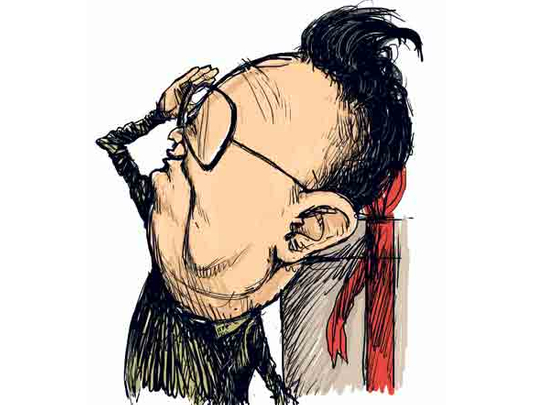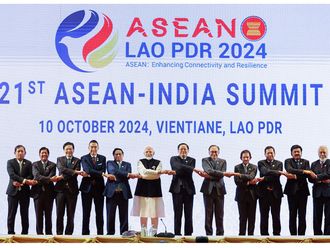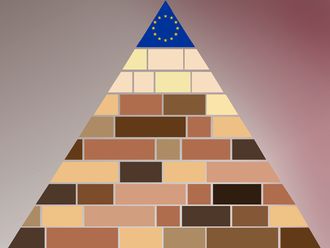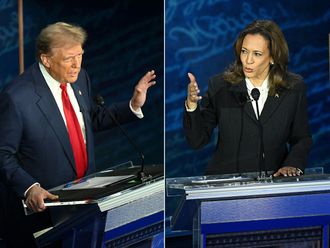
Fresh from sinking a South Korean navy ship and taking the lives of 46 mostly young sailors, North Korean leader Kim Jong-il hopped on his private armoured train last week for a friendly visit to his enablers in Beijing.
Is that a harsh interpretation of events? Yes; nuances and caveats to follow. But it's also an interpretation that best fits the available facts — and it raises questions about the Obama administration's enduring hope (like the hope of the Bush administration before it) for China's help in constraining not only North Korea but also Iran.
The South Korean corvette Cheonan exploded, broke in two and sank off the west coast of Korea in darkness March 26, with 46 of the crew of 104 killed or lost at sea. Officially, the cause of the explosion remains under investigation, and South Korean President Lee Myung-bak has lodged no accusations. But the two pieces of the boat have been salvaged, internal explosions have been ruled out as cause and South Korean newspapers reported that traces of a torpedo had been found. The list of logical suspects extends from A to A.
Lee, contending with popular anger among South Koreans, has laboured methodically to lay the groundwork for a multilateral response focused on diplomatic or economic sanctions; military retaliation would only risk wider war. To that end, he discussed the sinking with Chinese President Hu Jintao in Shanghai on April 30. South Korean officials hoped that China would help send a message to its ally in Pyongyang that ship-sinking is not an approved sport among civilised nations.
Instead, three days later, and without notification to South Korea, China rolled out the red carpet for North Korea's self-titled Dear Leader. The Chinese press was not permitted to report on the four-day visit as it took place or even acknowledge that it was happening. But after Kim was safely home, the Chinese news agency Xinhua reported that Hu had hosted a welcoming banquet in the Dear Leader's honour. "Hu said the traditional friendship between China and the DPRK [Democratic People's Republic of Korea] is the common treasure of the two governments, parties and peoples," Xinhua reported.
Useful influence
What to make of this? Analysts who believe that China wields a moderating, useful influence over North Korea found comfort in a five-point proposal that Hu issued. It called, for example, for the two countries "to strengthen coordination in international and regional affairs"; perhaps that signalled China's discontent that Pyongyang was sinking ships in the neighbourhood without warning.
According to the South Korean newspaper Chosun Ilbo, Kim unexpectedly departed Beijing before using his coveted ticket to the North Korean version of the Chinese classic opera Dream of the Red Mansion; maybe he left in a huff after Chinese officials had (perhaps) expressed reservations about ship-sinking.
On the other hand, Chosun Ilbo also reported that Kim returned home with promises of 100,000 tonnes of food and $100 million (Dh367.8 million) in other aid from China for the crippled North Korean economy. And that reflects China's true role in North Korea. Despite all the time spent in six-party talks in recent years, and all the discussion of China's new role as a "responsible stakeholder" and a "strategic partner", its main accomplishment has been to keep Kim Jong-il's murderous regime sputtering along. It does this by sending North Korean refugees who make it across the Yalu River back to North Korea, often to be executed, which tends to discourage the outward flow that would otherwise take place. And in periods when the United States, South Korea and Japan restrict their aid to North Korea for political reasons, China fills the gap. The regime's nuclear programme has not been restrained; it is likely to face no serious consequences for its sinking of the Cheonan.
All of this matters greatly to the 24 million or so people who remain imprisoned inside Kim's gulag nation. How much it matters to South Korea and its allies, including America, is debatable, since in one sense South Korea already has won the war. Its economy has grown to about $28,000 per person in purchasing power, according to the CIA World Factbook, not far behind Japan's; the CIA estimates the North Korean economy at $1,900 per person, which seems generous when stacked against accounts of refugees who have escaped.
But it may matter more as an indication of how much help President Obama can expect from Hu and his colleagues. For a US government hoping that China would rein in North Korea's nuclear programme and back sanctions strong enough to influence Iran's behaviour, Hu's post-Cheonan embrace of the Dear Leader must be a little dispiriting.








